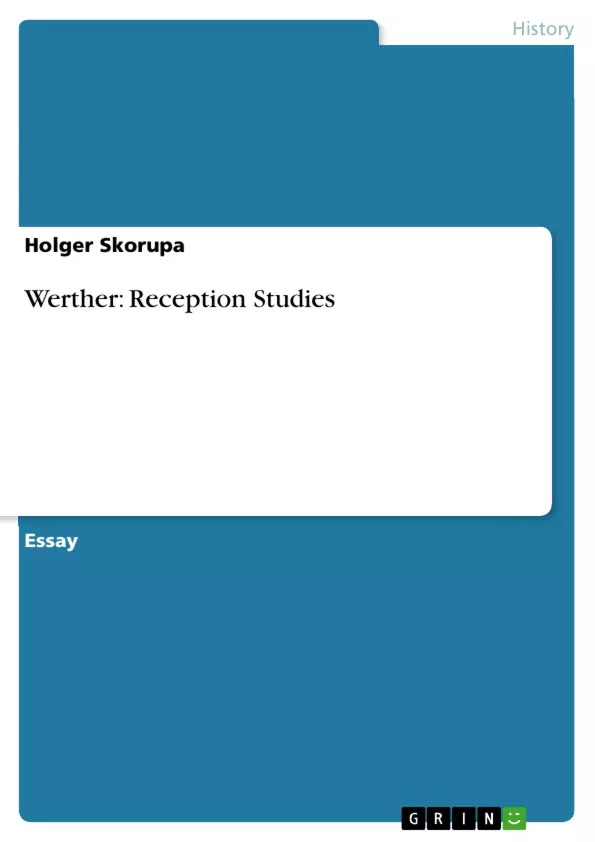“It is obvious (...) that a system arranged according to the rules of art is only concerned with proofs; that proof is a sort of demonstration, (...) rhetorical demonstration is an enthymeme, which, generally speaking, is the strongest of rhetorical proofs and lastly, that the enthymeme is a kind of syllogism.” [my Italics] Aristotle, one of the most reviewed ancient philosophers, whose intentions are still a highly significant counterpart in modern studies of philosophy as well as literature, emphasizes in his Rhetoric the steady necessity of rhetoric in general and its further progress particularly. Rhetoric has to be a proportion of personification, but it also ought to be a symbol underlining the importance of the political framework. The resulting question, therefore, might be, how to use persuaders or rather how to initiate an argument to be convincing. In addition Aristotle summarizes his ideas as an important part of historical review meaning the usefulness of various arguments over several centuries.
Reception studies take care of Aristotles´ announcements. The reception of Classical sources in current texts or theories offers both an interpretation of ancient material and the connection between the Classical scholar or writer and the later receiver. Thus, if reception can afford a poet‟s intention by creating a tragic momentum, for example, it may be also necessary to observe the reviews of various readers or an audience reflecting this poet‟s idea. As a result, reception could install a processing circle of interpretation, acculturation, and transplantation. This paper will show the reception of Classical material during the literary period of Storm and Stress by taking into particular consideration Johann Wolfgang von Goethe‟s Die Leiden des jungen Werther(s). Additionally, the reviews of young Goethe‟s tragedy and several interrelationships between Stormers, poets of German Enlightenment, and the political, social and cultural framework (regarding the receiving reader or audience) will also be investigated.
It is common that Goethe was an enthusiastic interpreter of Homer‟s Iliad and the Songs of Selma done by Ossian. By transferring his passion into Werther, the young Stormer shows his literarily bridge-building expectation to offer the audience or the single reader the world of Classicism.
Inhaltsverzeichnis (Table of Contents)
- Reception Studies
- Classical Reception in the Period of Storm and Stress
- Three Key Factors
- Democratic Popularism
- National Consciousness
- Classical Figures as Models
Zielsetzung und Themenschwerpunkte (Objectives and Key Themes)
This paper explores the reception of Classical material during the literary period of Storm and Stress in Germany, specifically focusing on Johann Wolfgang von Goethe’s "Die Leiden des jungen Werther" (The Sorrows of Young Werther). The objective is to demonstrate how Goethe's work reflects and engages with ancient Greek and Roman ideas and literary traditions, highlighting the role of Classical sources in shaping the themes and perspectives of this pivotal literary period.- Classical reception in German literature, particularly during the Storm and Stress movement
- The relationship between ancient ideas and modern literary themes
- The influence of Classical sources on Goethe's "Die Leiden des jungen Werther" and its significance for the development of German literature
- The role of Classical figures and models in shaping social and political commentary
- The intersection of Classical reception with broader cultural and historical contexts
Zusammenfassung der Kapitel (Chapter Summaries)
- The paper begins by defining the field of Reception Studies, emphasizing its focus on interpreting ancient sources within contemporary contexts and understanding the relationship between Classical authors and later receivers.
- The paper highlights the importance of Classical material in shaping the ideas and perspectives of the Storm and Stress movement, particularly in the work of young German writers like Schubart, Voss, Lenz, and Heinse.
- The paper examines three key aspects of Classical reception during the Storm and Stress period: democratic popularism, national consciousness, and the use of Classical figures as models.
- The paper explores how Goethe's "Die Leiden des jungen Werther" incorporates Classical themes and perspectives, particularly through the character of Werther who embodies certain aspects of ancient Greek and Roman thought.
- The paper analyzes how the reception of Classical material reveals both continuity and change in cultural attitudes, highlighting the enduring influence of ancient thought on modern literature and society.
Schlüsselwörter (Keywords)
The main keywords and focus topics of this paper revolve around the intersection of Classical reception, literary movements, and societal commentary. Key terms include: Classical reception, Storm and Stress, German literature, Johann Wolfgang von Goethe, "Die Leiden des jungen Werther", democracy, national identity, Classical figures, appropriation, acculturation, cultural continuity and change, and the influence of ancient thought on modern perspectives.Frequently Asked Questions
What are Reception Studies in literature?
Reception Studies examine how Classical Greek and Roman sources are interpreted and adapted in later literary periods, focusing on the connection between ancient authors and modern readers.
How does Goethe's "Werther" relate to Classical reception?
Johann Wolfgang von Goethe incorporated Classical themes and models into "The Sorrows of Young Werther," reflecting his passion for Homer and Greek tragedy within the Storm and Stress movement.
What are the key factors of Classical reception during the Storm and Stress period?
The three key factors are democratic popularism, national consciousness, and the use of Classical figures as moral and political models.
What is the role of Aristotle's Rhetoric in this study?
Aristotle's ideas on persuasion and the enthymeme are used as a framework to understand how arguments were constructed and received across different centuries and cultural contexts.
Which other Storm and Stress writers were influenced by Classicism?
Beside Goethe, writers like Schubart, Voss, Lenz, and Heinse were significantly influenced by ancient Greek and Roman literary traditions.
- Citation du texte
- Magister Artium Holger Skorupa (Auteur), 2008, Werther: Reception Studies, Munich, GRIN Verlag, https://www.grin.com/document/265358



